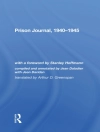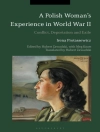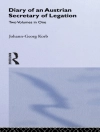In 'The Letters of Jane Austen, ’ readers are granted intimate access to the thoughts and reflections of one of English literature’s most revered authors. This collection spans the years of Austen’s life, showcasing her keen observations on society, love, and familial relationships, all articulated with her characteristic wit and irony. The letters reveal much about her literary process, explore her complex characters, and highlight the societal constraints of early 19th-century England. The intimate and candid nature of these correspondences provides a valuable context to Austen’s novels, enriching the experience of her fiction through a lens of personal insight and historical nuance. Jane Austen, born in December 1775, navigated the societal mores of her time with a unique perspective shaped by her close-knit family and educational experiences. A keen observer of the social dynamics around her, her letters offer glimpses into her writing struggles, discussions on the role of women, and insights into her relationships, particularly with her siblings. Often considered a critic of social status and class constraints, these letters provide essential background for understanding her novels like 'Pride and Prejudice’ and 'Sense and Sensibility.’ For those wishing to delve into the mind of Jane Austen, 'The Letters of Jane Austen’ is an indispensable read. It not only complements her literary oeuvre but also allows readers to appreciate the personal struggles and joys of the author herself. This compelling collection serves both scholars and enthusiasts, inviting them to engage deeper with Austen’s enduring legacy.
O autorze
Jane Austen (1775–1817), one of the most celebrated writers in the English language, is known for her keen observation, social commentary, and pioneering role in the development of the novel as a form of literary art. Born on December 16, 1775, in Steventon, Hampshire, Austen was the seventh child of the Reverend George Austen and Cassandra Austen. She spent the majority of her life in the countryside, which provided a backdrop for much of her fiction. Austen’s novels, characterized by their wit, vivid characterizations, and detailed depiction of the everyday life of the British gentry, have earned her a place in the canon of Western literature. Although her work achieved only modest success during her lifetime, posthumous publications, such as 'The Letters of Jane Austen’, have contributed to her lasting fame. Austen’s major novels, including 'Pride and Prejudice’, 'Sense and Sensibility’, 'Mansfield Park’, 'Emma’, 'Northanger Abbey’, and 'Persuasion’, critique the dependence of women on marriage for social standing and economic security, while simultaneously offering a humorous take on the mores of her time. Austen’s literary style, characterized by irony, caricature, and social realism, has been widely studied and celebrated, establishing her as a key figure in the history of English literature.












